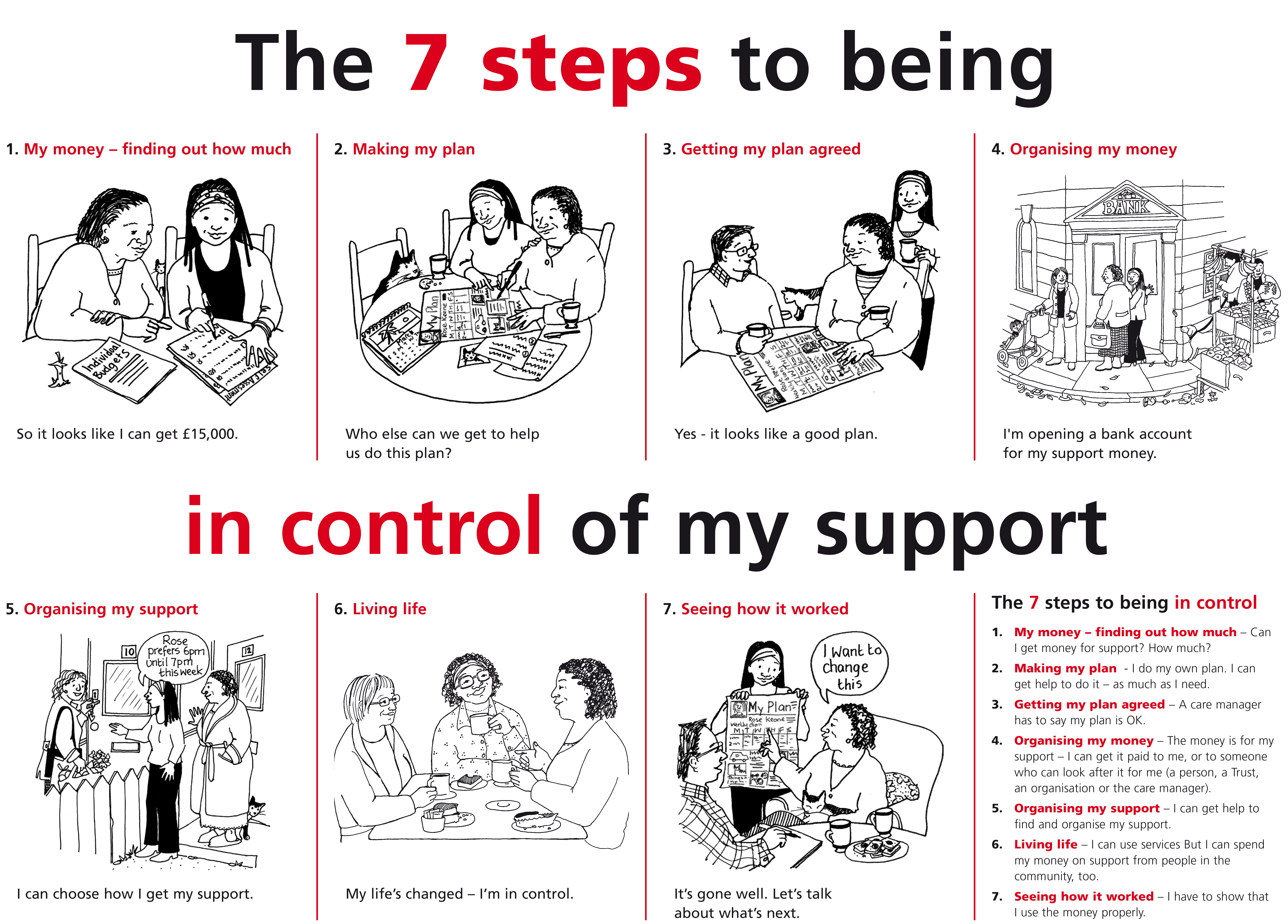Information about self-directed support
What is self-directed support?
Self-directed support is about people being in control of the support they need to live the life they choose. You may have heard it being referred to as 'personalisation' or 'personal budgets'. There are different ways to describe it, but whatever name's given to it - it's about giving people real power and control over their lives.
To help people get control of their support we have developed the 'Seven steps to being in control of your support'
People are now able to self-direct their care or support in a number of different ways:
A personal budget is money that is available to someone who needs support. The money comes from their local authority services.
The person controlling the budget (or their representative) must:
- know how much money that they have for their support
- be able to spend the money in ways and at times that make sense to them
- know what outcomes must be achieved with the money.
A direct payment is money that is paid directly to you so you can arrange your own support.
A personal health budget is an amount of money to support someone's health and well-being needs, which is planned and agreed between the individual or their representative, and the local clinical commissioning group (CCG). It isn't new money, but a different way of spending heath funding to meet the needs of an individual.
Personal health budgets are a way of personalising care, based around what matters to people and their individual strengths and needs. They give disabled people and people with long term conditions more choice, control and flexibility over their healthcare.
A personal health budget may be used for a range of things to meet agreed health and well-being outcomes.
See this care and support jargon buster for more definitions relating to self-directed support.

